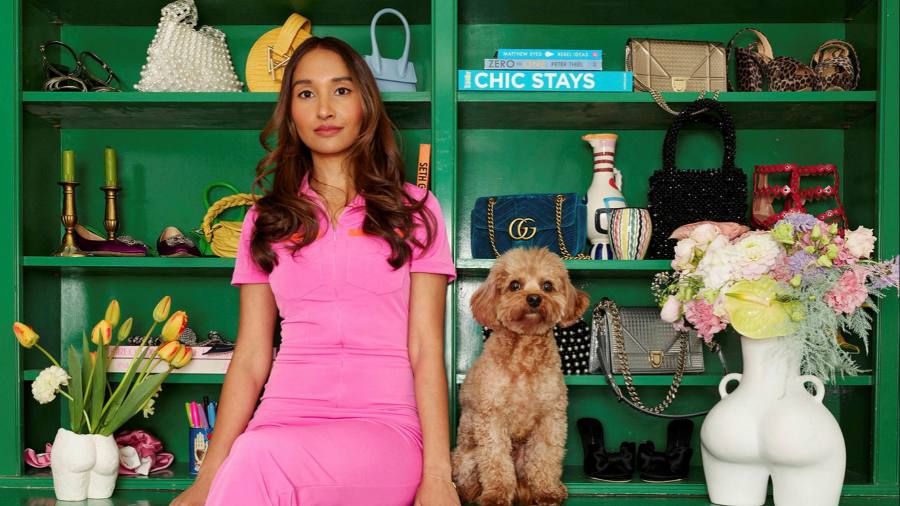Fashion for rent: the new style of ethical dressing
The desire for novelty tormented me for most of my twenties. Whether it was a dress for a special occasion or an outfit for a work dinner, the thrill of buying something new was a way of life. However, as I grew into my style, the desire for the latest trends turned into a more socially conscious attitude towards shopping – and for very good reasons. According to the Waste and Resources Action Programme, a climate action NGO, we throw away around £140million worth of clothes in the UK every year.
The pandemic has given us time to reflect and realize how quickly fashion is produced. Many of us are now looking for ways to avoid buying there, while not wanting to break the bank.
The cultural shift towards a more ethical approach to fashion has accelerated as peer-to-peer clothing rental has become more common. Before the pandemic, the idea of renting a stranger’s clothes might have seemed offbeat. It is now part of our way of working and living. According to Westfield’s ‘How We Shop: What’s Changed’ report, UK consumer interest in renting clothes has risen from 22% in 2020 to 27% a year later. He predicts that consumers’ appetite for renting rather than owning items will continue to grow, with a shift towards continued renting of more items – renting as a way of life, not just an occasional choice. .
Former investment analyst Eshita Kabra-Davies saw this change and identified an opportunity. On honeymoon in Rajasthan, India, she was shocked by the amount of textile waste she saw. In 2019, she founded the rental platform By Rotation, a social platform for fashion rental and resale. It was a scramble for six months before she took the leap to work there full time.
The app, also called By Rotation, has a rapidly growing community of over 300,000 lenders and tenants across the UK, coming together to share over 35,000 items from their wardrobes. From trendy brands like Ganni, Rixo and Jacquemus to classics like Chanel and Fendi, the platform (dubbed “the Instagram of fashion rentals”) boasts a joint wardrobe worth over $13 million of pounds sterling. Similar to the principle of Airbnb, but for clothing, without inventory management, it offers a new perspective on fashion consumption and sustainability. It challenges the traditional fashion rental landscape by moving away from a capital-intensive, logistics-heavy and retail-centric approach.
By Rotation’s slogan, “What’s mine is yours”, reflects an inclusive attitude. Although the brand has famous rotators, such as TV presenter Stacey Dooley, athlete Dina Asher-Smith and aristocratic model Amelia Windsor, anyone can monetize their style. “They don’t have to be fashion bloggers, influencers or celebrities – they can just be someone [who is] a tastemaker in their circle of friends and known for his personable style,” says Kabra-Davies.
Clothing rental is still relatively new in the UK (compared to pioneering US platform Rent the Runway), but the app has become a secondary source of income for many of its users, with some major lenders earning over £2,500 per month. Kabra-Davies gives the example of a person who could not afford to return to work because of childcare costs: by lending clothes, she was able to supplement her income and return to work.
By Rotation recently raised $3m (£2.55m) in seed funding in a bid to expand. While the clothes can be posted, they can also be exchanged in person, so the start-up hopes to develop communities in Manchester and Birmingham in the UK, and in the US, in New York.
As the rental model continues to grow and the value of the global sharing market is expected to reach $1.5 billion by 2024, according to BCC Research, more brands and traditional retailers are missing out. John Lewis and French Connection recently introduced a rental service, and reality TV show the island of love announced a partnership with eBay to dress contestants in second-hand outfits. It looks like our throwaway attitude to fashion might now be the very last season.


Comments are closed.